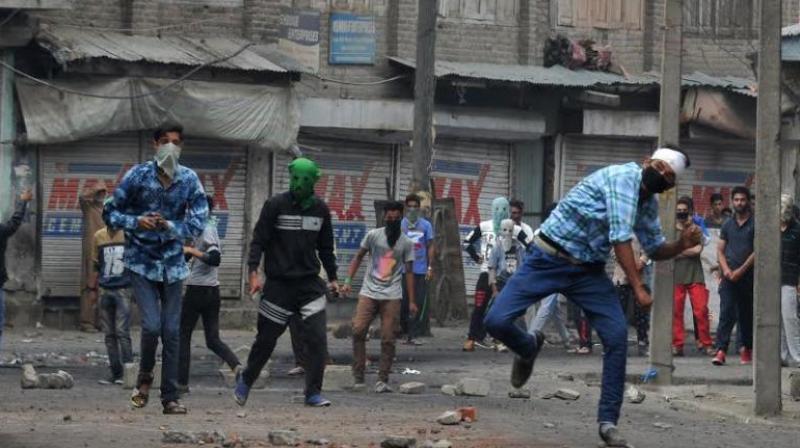Communal violence hits peak in Rajasthan
Hate crimes have become more one-sided: Experts

Jaipur: It is not only ironic but also hard to believe that Rajasthan where not a single major incident of communal violence took place at the time of partition, is today among the eight states which account for 85 per cent of communal incidents in the country.
The transition from a quiet and peaceful state to the one having several flashpoints of communal polarisation began in the late 80s with the Ram Temple movement that left behind a trail of hatred, distrust and fear and setting off a chain of communal incidents in last three decades.
However, the ugly face of present day communal violence is vicious, venomous and one-sided.
“Earlier, the other side was also at fault sometimes but now there is only one aggressor and the other one is a victim,” said Kavita Shrivastava, state president of PUCL who has done several case studies of communal incidents in Rajasthan.
A senior IPS officer who has served in sensitive areas at the time of communal frenzy in the 90s agreed. “Usually, two sides are involved in what we call communal clashes but what is being seen now is that attacks are happening only by one side on flimsy ground,” said the officer who did not wish to be named.
According to him, during the Ram temple movement and post-Babri mosque demolition people got influenced by national events but now they are giving into false propaganda of ‘love jihad’ while there is data to support this trend.
Dalit social activist Bhanwar Meghwanshi, who was at one point of time active member of RSS, warns about ignoring murder of Pehlu Khan and Afrazul as mere hate crimes. “It is a planned terrorism by the majority community. It is part of a much larger conspiracy to instill fear among the minorities to make them submissive and nonchalant,” he said.
What is worries some is that unlike in the past when at least those in the government would condemn such incident even if they had tacit understanding with the perpetrators, they now openly support from those responsible to maintain law and order, he alleged citing statements by home minister Gulab Chand Kataria. When Pehlu Khan was killed, Kataria said that both sides were at fault.
The home minister along with her cabinet colleague Kiran Maheshwari and Rajsamand MP Hariom Singh Rathore was member of a WhatsApp group that hailed the murder of Afrazul.
Social scientist and former professor in Rajasthan University, Dr Rajiv Gupta said that it reflects decay of progressive intellectualism in the society. “We are becoming reactionary and religious intolerant. The social divide is widening. The sustained campaign of polarising on communal lines is paying off for the present dispensation,” he said.
It is true because earlier whenever there was an incident elders used to help cool down tempers but that is now missing. “Sensing mood of politicians who are ganing from the communal divide, police are now reluctant to take such initiative, which is unfortunate,” the IPS officer said.
Major communal incidents
1990: Following L.K. Advani’s arrest during Ram rath yatra, a bandh was called in Jaipur. A rumour that kids were held captive in a mosque sparked off riots. The violence claimed around 50 lives.
1992: communal violence in the aftermath of the Babri Masjid demolition claimed 60 lives throughout the state with the capital, Jaipur (28 deaths) and Malpura (22 deaths) being worst affected.
2011: Police inspector Phool Mohammed was burnt alive by a mob after a man jumped to death to protest alleged police inaction in a murder case in Sawai Madhopur.
Hate Crimes
2015: A mob angered by the pictures of carcasses of cows attacked Abdul Ghaffar Qureshi, owner of a meat shop assuming that he might start selling beef in Birloka village in Nagaur district.
2017: Pehlu Khan, a dairy farmer, was accused of smuggling cattle and was lynched by a large mob on the national highway in Alwar district.
2017: Folk singer Ahmed Khan was killed by village priest and his brothers for “not singing well” to enable him to “invoke the supernatural powers of healing”.

